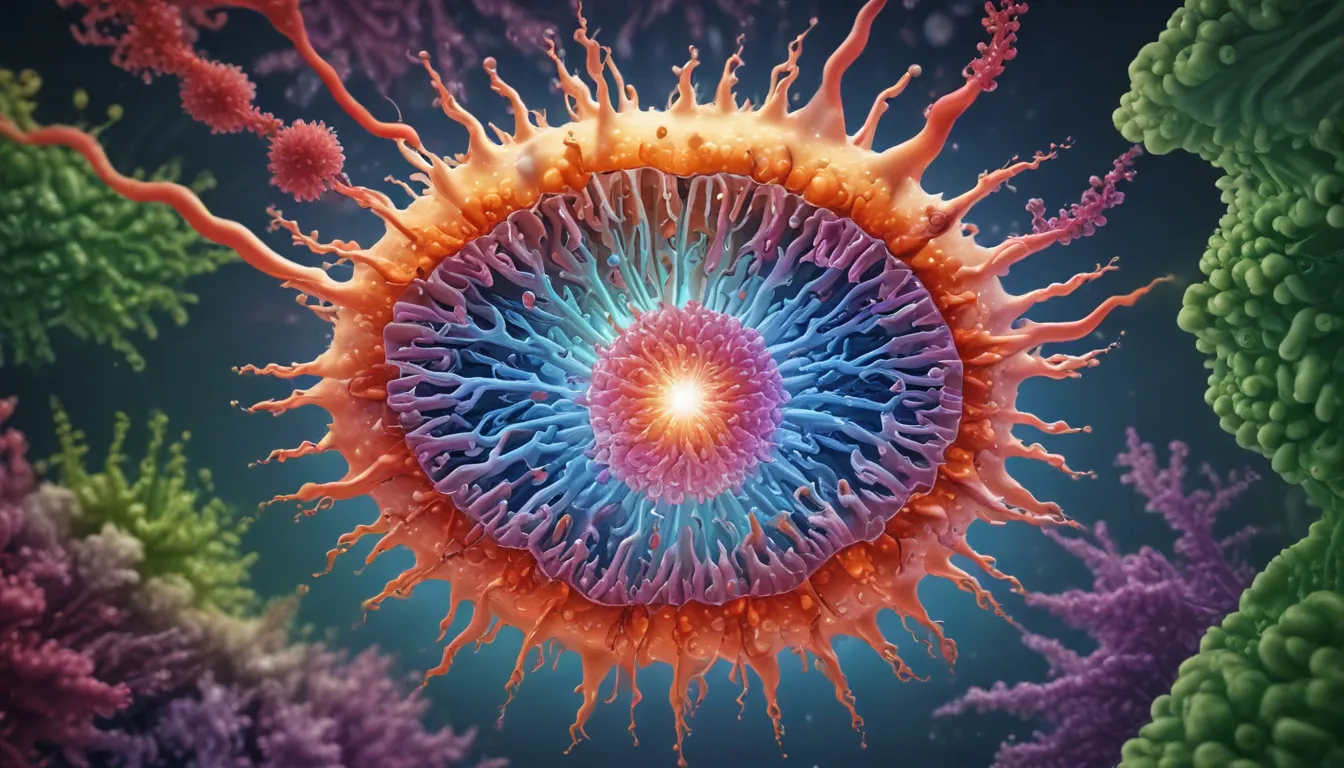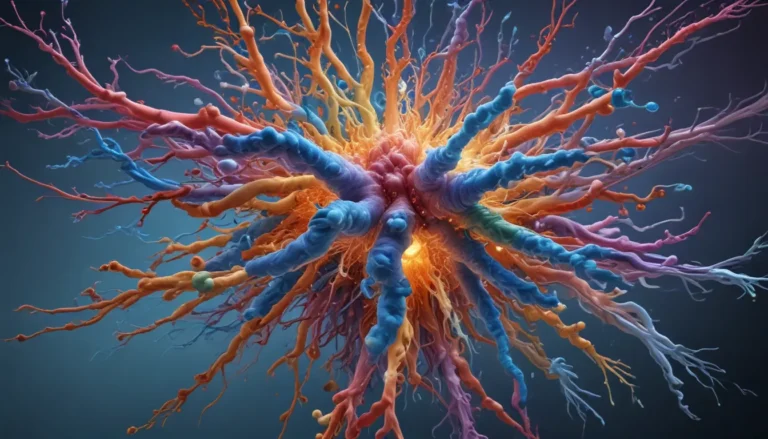A Note About Images: The images used in our articles are for illustration purposes only and may not exactly match the content. They are meant to engage readers, but the text should be relied upon for accurate information.
In the intricate dance of the immune system, antigen-presenting cells (APCs) serve as the unseen heroes, orchestrating the body’s defense against invaders. These remarkable cells act as intermediaries between the innate and adaptive immune systems, ensuring that the body can recognize and combat pathogens effectively.
Let’s embark on a journey to uncover 18 surprising facts about antigen-presenting cells, shedding light on their intriguing characteristics and functions. From their various types and distribution in the body to their specialized mechanisms of antigen presentation and activation of immune responses, APCs are truly remarkable players in the complex symphony of the immune system.
So, prepare to delve into the realm of antigen-presenting cells and unveil fascinating insights about these often-overlooked immune warriors.
The Crucial Role of Antigen-Presenting Cells in Immune Responses
Antigen-Presenting Cells (APCs) are pivotal players in the immune response, capturing, processing, and presenting antigens to T cells, thereby kickstarting the immune defense mechanism.
Exploring the Diverse Types of Antigen-Presenting Cells
There are three primary types of APCs: dendritic cells, macrophages, and B cells, each with unique properties and functions within the immune system.
Dendritic Cells: The Mighty APCs
Dendritic cells stand out as the most potent APCs, excelling in antigen capture and immune response initiation. They play a crucial role in activating T cells efficiently.
Macrophages: The Versatile Guardians
Macrophages not only present antigens but also engage in phagocytosis, cytokine production, and tissue homeostasis, serving as key players in both innate and adaptive immunity.
B Cells: The Dual-Functioning Defenders
B cells, known for antibody production, also possess the ability to present antigens to T cells, participating effectively in both humoral and cellular immune responses.
Unveiling the Arsenal of Antigen-Presenting Cells
APCs express specialized receptors like Toll-like receptors (TLRs), scavenger receptors, and Fc receptors for antigen recognition, aiding in antigen uptake and subsequent presentation to T cells.
The Balancing Act: Antigen-Presenting Cells in Immune Tolerance
APCs play a critical role in maintaining immune tolerance to self-antigens, educating T cells to differentiate between self and foreign antigens to prevent inappropriate immune responses.
The Journey of Antigen-Presenting Cells: From Antigen Capture to Activation
APCs present antigens to naive T cells, leading to their activation and differentiation into effector T cells, a vital step in mounting an effective immune response against pathogens.
The Structural Marvel of Antigen-Presenting Cells
Dendritic cells sport dendrites, elongated structures that increase their surface area for antigen capture, enhancing their ability to present antigens to T cells effectively.
The Odyssey of Antigen-Presenting Cells: Migration to Lymphoid Organs
Following antigen capture, APCs can migrate to lymphoid organs such as lymph nodes and spleen, where they present antigens to T cells, triggering immune responses.
Bridging the Gap: Antigen-Presenting Cells and T Cell Interactions
APCs interact with both helper T cells (CD4+) and cytotoxic T cells (CD8+) by presenting antigens, a crucial step in coordinating an efficient immune response against pathogens.
The Memory Keepers: Antigen-Presenting Cells and Memory T Cells
APCs also activate memory T cells upon re-exposure to previously encountered antigens, leading to a rapid and robust immune response during secondary infections.
The Cat and Mouse Game: Pathogens and Antigen-Presenting Cells
Certain pathogens have evolved strategies to exploit or interfere with APCs, evading immune recognition and establishing infections, showcasing the battle between host immunity and pathogens.
Antigen-Presenting Cells in Cancer Immunotherapy
Researchers are exploring the potential of APC-based therapies in cancer immunotherapy, leveraging antigen presentation and immune responses to combat cancer effectively.
The Fine Line: Antigen-Presenting Cells and Immune Tolerance Induction
In specific contexts, APCs can induce immune tolerance, suppressing immune responses and preventing excessive inflammation or autoimmunity, highlighting their dual roles in immune regulation.
The Influence of the Microenvironment on Antigen-Presenting Cells
The microenvironment, including cytokines and chemokines, can impact the function and behavior of APCs, shaping the immune response dynamics in various contexts.
The Ever-Evolving Realm of Antigen-Presenting Cells in Research
Scientists continue to unveil the mysteries of APCs, uncovering new insights into their roles, functions, and therapeutic applications, driving innovation and progress in immunology research.
Conclusion: Unraveling the Enigma of Antigen-Presenting Cells
In conclusion, antigen-presenting cells (APCs) stand as indispensable guardians of the immune system, orchestrating immune responses by presenting antigens to T cells. Throughout this exploration, we have ventured into the realm of APCs, uncovering their diverse types, functions, and pivotal role in immune regulation. Understanding the intricacies of antigen presentation and immune responses mediated by APCs is pivotal in developing targeted therapies against diseases and unraveling the complexities of the immune system.
FAQs: Unveiling Facts About Antigen-Presenting Cells
-
What are antigen-presenting cells (APCs)?
Antigen-presenting cells are specialized immune cells responsible for capturing, processing, and presenting antigens to T cells to initiate immune responses. -
What are the different types of APCs?
The main types of APCs include dendritic cells, macrophages, and B cells, each contributing uniquely to immune responses. -
How do APCs contribute to immunological memory?
APCs play a crucial role in generating memory T cells through antigen presentation to naive T cells, ensuring long-term protection against future infections. -
Can APCs induce immune tolerance?
Yes, APCs have the capacity to induce immune tolerance, regulating immune responses and preventing autoimmunity in certain contexts. -
How do pathogens interact with antigen-presenting cells?
Some pathogens can hijack APCs or interfere with antigen presentation, evading immune recognition and establishing infections, illustrating the battle between host immunity and pathogens. -
Are APCs involved in cancer immunotherapy?
Researchers are exploring APC-based therapies in cancer immunotherapy, harnessing antigen presentation and immune responses to combat cancer effectively.
Embrace the Journey of Discovery
As we unravel the wonders of antigen-presenting cells, we embark on a voyage of discovery into the intricate mechanisms of the immune system. Each revelation brings us closer to understanding the complexities of immune responses and developing innovative strategies for combating diseases. Join us in celebrating the extraordinary capabilities of antigen-presenting cells, the unsung heroes of the immune system, and let’s continue to explore the boundless realms of immunology together.
Acknowledgment
Appreciation is extended to the sources of knowledge and insights that have enriched our understanding of antigen-presenting cells, fostering a community of learning and discovery. Together, we illuminate the path toward uncovering the mysteries of the immune system, advancing scientific knowledge, and enhancing human health and well-being.






